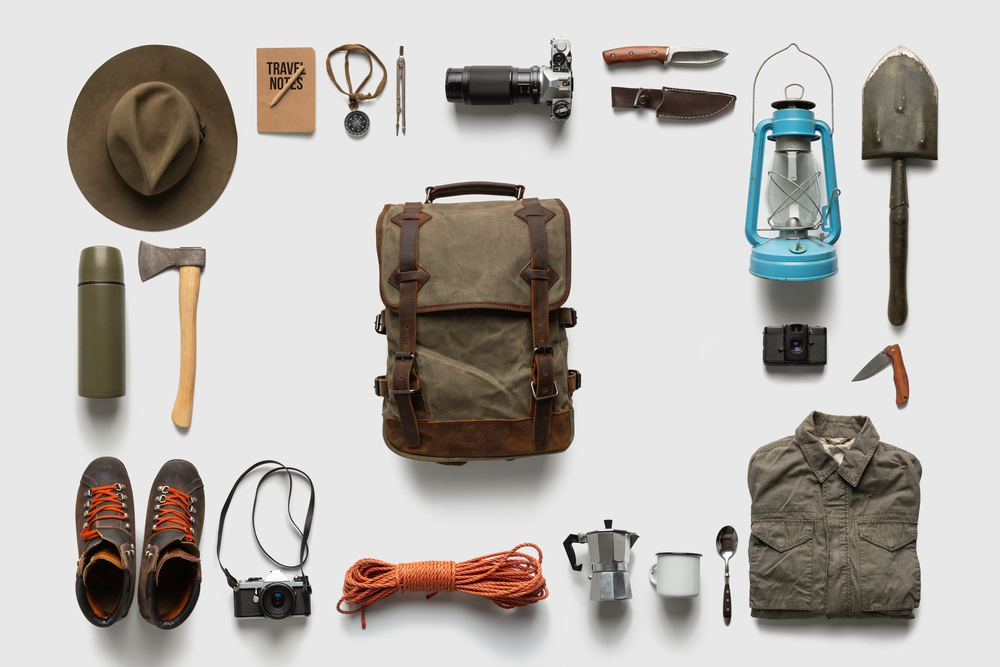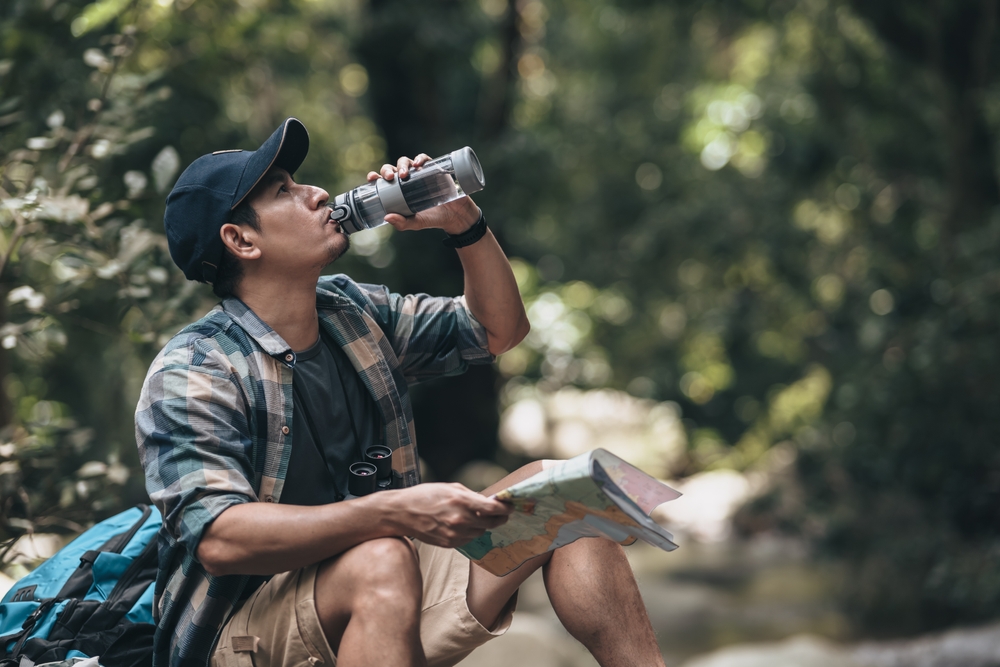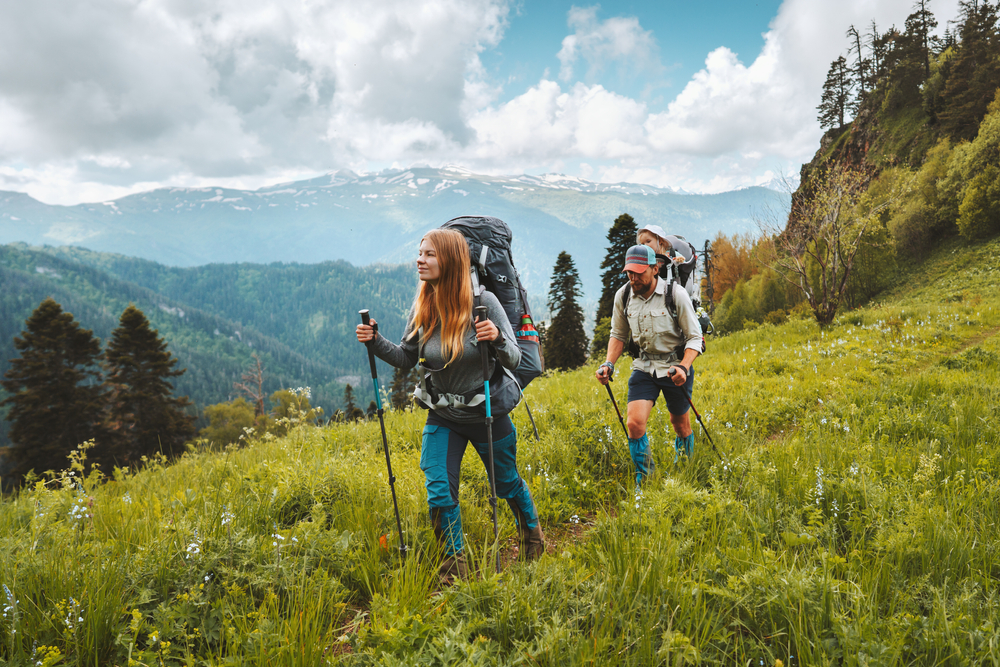Introduction:
Hiking isn’t just about reaching the summit of a mountain or completing a challenging trail; it’s about connecting with nature, exploring new landscapes, and discovering the joy of outdoor adventures. Whether you’re venturing into the wilderness for the first time or looking to expand your hiking horizons, having the right gear and knowing some essential trail tips can make all the difference. In this guide, we’ll explore the essentials of hiking gear and share some helpful tips to ensure a safe and enjoyable hiking experience for beginners.
Gear Essentials:

1. Comfortable Hiking Boots: Your footwear can make or break your hiking experience. Invest in a pair of sturdy hiking boots with good ankle support and a grippy sole to keep you stable on uneven terrain.
2. Backpack: Choose a lightweight, comfortable backpack with adjustable straps and multiple compartments to carry all your essentials, including water, snacks, extra clothing, and safety gear.
3. Clothing Layers: Dress in layers to stay comfortable in changing weather conditions. Start with a moisture-wicking base layer, add insulating layers for warmth, and finish with a waterproof outer layer to protect against rain and wind.
4. Navigation Tools: Bring along a detailed trail map, compass, or GPS device to help you navigate unfamiliar trails. Get to know the route before you start your journey and keep an eye out for trail markers as you go.
5. Hydration System: Stay hydrated on the trail by carrying plenty of water. Think about utilizing a hydration reservoir or water bottles equipped with built-in filters to conveniently obtain clean drinking water.
6. Nutrition: Pack lightweight, energy-rich snacks like trail mix, granola bars, and dried fruit to fuel your hike. Aim to eat small, frequent snacks to maintain your energy levels throughout the day.
7. First Aid Kit: Be prepared for minor injuries and emergencies with a compact first aid kit containing bandages, antiseptic wipes, blister pads, pain relievers, and any personal medications you may need.
8. Sun Protection: Protect your skin and eyes from the sun’s harmful rays by wearing sunscreen, sunglasses, and a wide-brimmed hat. Think about bringing along a lightweight, long-sleeved shirt to provide extra protection from the sun.
9. Emergency Shelter: Pack a lightweight emergency shelter, such as a space blanket or bivy sack, in case you get stranded on the trail overnight or encounter unexpected weather conditions.
10. Multi-Tool: Carry a multi-tool or pocket knife for minor repairs, gear adjustments, and other tasks that may arise on the trail.
Trail Tips for Beginners:
1. Start Small: Choose beginner-friendly trails with well-marked paths and moderate terrain to build your hiking skills and confidence gradually.
2. Know Your Limits: Listen to your body and know when to take breaks, rest, or turn back if you’re feeling tired or overwhelmed. Take your time and avoid exceeding your comfort zone.
3. Practice Leave No Trace: Minimize your environmental impact by adhering to Leave No Trace principles. Stick to marked trails, carry out all trash, and refrain from disturbing wildlife or plant life.
4. Stay Safe: Be aware of potential hazards on the trail, such as steep drop-offs, slippery rocks, and wildlife encounters. Follow trail signs and warnings, and use caution when crossing streams or climbing steep terrain.
5. Hike with a Companion: When feasible, hike alongside a friend or a group to enhance safety and enjoy the camaraderie. Share your hiking plans with a trusted individual and maintain regular communication to ensure your well-being.
6.Show Respect for Wildlife: View animals from afar and refrain from getting too close or offering them food. Ensure that your food and trash are stored securely to avoid drawing wildlife to your camping area..
7. Be Prepared for Weather Changes: Check the weather forecast before heading out and dress accordingly. Be prepared for sudden changes in weather, including rain, wind, or temperature fluctuations.
8. Stay Hydrated and Fueled: Drink water regularly to stay hydrated, even if you don’t feel thirsty. Eat small, nutrient-rich snacks to maintain your energy levels and prevent fatigue.

9. Take Care of Your Feet: Keep your feet dry and blister-free by wearing moisture-wicking socks and properly fitting hiking boots. Stop to rest and check your feet periodically for hot spots or signs of irritation.
10. Enjoy the Journey: Take time to appreciate the beauty of your surroundings and the sense of accomplishment that comes with reaching your destination. Hiking involves both the journey and the destination, each being equally significant.
Conclusion:
Embarking on a hiking adventure is an exciting opportunity to explore the great outdoors, challenge yourself, and connect with nature. By equipping yourself with the right gear and following these essential trail tips, you can enjoy a safe and rewarding hiking experience as a beginner. Remember to start small, stay prepared, and embrace the joy of discovering new trails and scenic vistas along the way. Happy hiking!

